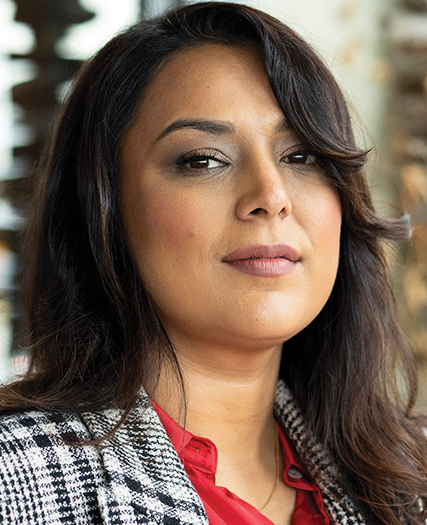Power
 |
| Dr Ramneek Dosanjh |
In my role as president, I have had the privilege of meeting and engaging with members across the province, and it has given me the unique opportunity to lean into crucial conversations and necessary dialogue. I recognize the significant contributions you all continue to make within a crumbling system. I recognize that many of us share the same concerns about inequities, scarcity of resources, and uncertainty in an ever-changing health care landscape. And I recognize that a common theme in all the discussions I have had during my term has been about power—the distribution of it, who holds it, and how it influences our day-to-day decision-making on an individual and systemic level.
Power can directly and inadvertently affect all of us in medicine, health care, and society. It can challenge our personal beliefs, our interpersonal relationships, and our participation in the world. And the abuse of power ultimately hinders effective and meaningful progress. If there was ever a question about its relevance, ask those who feel powerless in the system or feel the glaring inequities in gender, race, and access. Ask someone who is homeless, an Indigenous person, an immigrant or refugee, a person living with addiction, or a patient living in a remote geographic location. Many of you have voiced concerns about the power dynamics that exist rampantly throughout health care, and most of us can agree there is an unacceptable status quo in the distribution of that power, whether in respect to equity and cultural safety, within our training and our institutions, or from health care administration to delivery and the hierarchical system. Power has perpetuated long-standing colonialism, racism, ableism, capitalism, and misogyny, all of which have devastating impacts on health care and humanity.
We as a profession are familiar with the impacts of power. On the day we are granted our medical licence, there is an immediate transference of power from patient to doctor. Patients look up to us, depend on us, and trust us to advocate on their behalf. They know it is our expertise and intervention that will significantly influence or alter their lives. That is a power unlike any other, and it comes with a responsibility to do the right thing, always. Yet in our operational and systemic interactions there are times when we face an abuse of power—an unnecessary top-down approach from administrators or decision-makers. These circumstances perpetuate the inability to evolve and transform health care in a meaningful way. If there was a devolution of the anchors of power within the system, we could create a more promising reality.
The power of our voice and how to alter its trajectory belong solely to us. Ultimately, the greatest power we have as individuals lies within our belief systems and in the community we surround ourselves with—two things that allow us to challenge the status quo and make a collective impact. The largest inequity that may fuel our anguish could be the perception of power, and the only way for us to achieve true equity is by advocating for the dissolution of power and the decolonization of our system. But how do we do this? What is the first step for us to take?
When I think about the privilege of practising medicine alongside my colleagues, about supporting physician outreach across the province, and about the cultural safety and humility work, I am reminded of the importance of community. And I truly believe that if we rely on a sense of community we will have the ability—and the power—to challenge the existing culture. Understanding one another at our deepest levels, acknowledging our roots, and respecting what we each contribute to medicine are imperative to our evolution as a profession and to the evolution of our health care system overall. When we emphasize the importance of building community while respecting our differences, we enable our unique individuality while honoring our collective responsibility to serve health and humanity.
As renowned theorist and activist bell hooks wrote, “Beloved community is formed not by the eradication of difference but by its affirmation, by each of us claiming the identities and cultural legacies that shape who we are and how we live in the world.” Harnessing our shared experiences and grievances about power imbalances will lead us to disrupt the existing dynamics if we choose to do it together.
—Ramneek Dosanjh, MD
Doctors of BC President
hidden
 |
| This work is licensed under a Creative Commons Attribution-NonCommercial-NoDerivatives 4.0 International License. |
